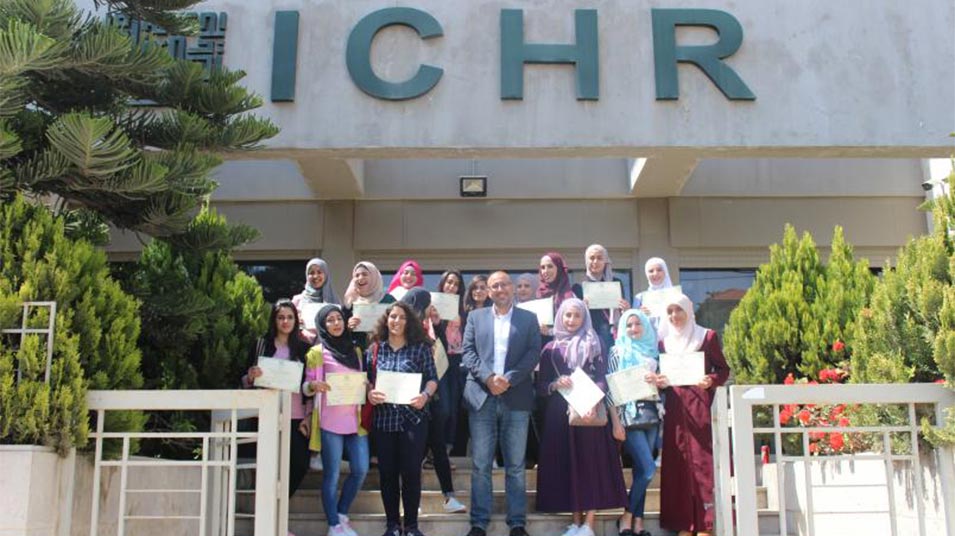Human rights training course shines spotlight on civil and political rights, capital punishment
Human rights activists and advocates from the Independent Commission for Human Rights (ICHR) concluded a 12-hour training course, entitled “Human Rights Principles and Concepts.” The course, attended by law, public administration, and political science majors at Birzeit University, was held on April 2-8, 2018, and featured Director General of the ICHR Ammar Dwaik.
Dwaik, in his talk, emphasized the training course’s key role in fostering a rights-based approach in law and public administration graduates when working at organizations and institutions, fostering respect for human rights and civil liberties in light of the relevant national legislation and international norms, raising awareness on the commission’s role in protecting human rights, and international human rights protection mechanisms.
The training course’s first day featured Mayyada Badawi, chair of the Department of Public Administration, who welcomed guests and attendees and highlighted the ICHR’s efforts in raising the awareness of the department’s students on human rights and bolstering their legal skills.
Anas Bawatneh, community activism coordinator at the ICHR, briefly outlined human rights, their principles, and the history behind them, in addition to civil, political, social, and cultural rights as well as the right to life and the right to bodily integrity.
The second day of training saw Areen Dwaikat, a field researcher at the ICHR’s Middle West Bank Offices, give a short training presentation on the death penalty and the ICHR’s standpoint on capital punishment, and Bawatneh discussing the freedom of speech and the right to peaceful assembly.
On the final day of the course, Islam Tamimi, director of training, awareness, and advocacy at the ICHR, explored international human rights violations monitoring and documentation mechanisms. He was joined by Sami Jabareen, complaints and inquiry coordinator at the ICHR, who summarized the commission’s role in inquiry receipt and follow-up.
Guests, students, and attendees underlined the role of the training course in amalgamating practical expertise with theoretical knowledge of the law and human rights, and remarked that the training, which was organized jointly by the ICHR and the Department of Public Administration for the second year in a row, shed light on capital punishment and torture.







